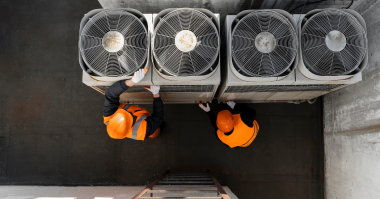Those of us involved with industrial maintenance are well aware of the skills shortage in industry. Before working for VibrAlign, I taught industrial maintenance part-time at a local community college. While there were some students directly out of high school, most of the students in my classes were middle-aged. And many of those were displaced factory workers, seeking new skills for the ever-changing manufacturing industry.
We hear a lot about the increased need for maintenance people to have “high tech” skills-automation, computers, instrumentation/controls, robotics, and so on. And while those skills are extremely important, and necessary in this day and time, there is also a vast skills shortage in “classical” maintenance, i.e., machining, welding, blueprint reading, pipefitting, sheet metal, and so on. I’m amazed at the number of mechanics who don’t even know how to properly assemble a fastener, install a V-belt, replace a bearing, or align a motor/pump.
I have trained in companies who place a great emphasis on technology, but seem to think that mechanical skills can simply be picked up “on the job”. All too often, this means that the new maintenance person learns the bad habits, shortcuts, and improper methods shown to them by more experienced personnel. In this all too common scenario, machinery errors are perpetuated, not “fixed”.
Want to make a change? Then don’t lose sight of “classical” maintenance training! Take full advantage of professional training offered by companies. Encourage apprenticeships and community college training programs. Benchmark maintenance against itself. Is it getting better? Are we reducing breakdowns, spare parts usage, and wrench time? Poll the maintenance staff. Ask where their struggles are. What do they need?
It’s an old adage, but true. You can’t afford not to!





Comments